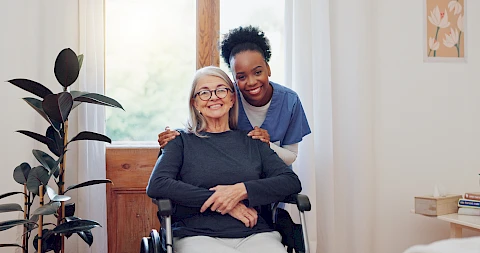
When a senior loved one is discharged from the hospital, they often need extra help to fully recover and return to their daily lives. This is where transitional care comes in. It helps seniors transition smoothly from hospital to home or another care environment. For family caregivers, the decision-making process can be both emotionally and logistically challenging. Balancing the well-being of your loved one with the practical aspects of care is no small task. We want to help families make informed decisions about transitional care, ensuring the best possible outcomes for their loved ones.
What Is Transitional Care?
Transitional care is designed to bridge the gap between acute hospital care and full recovery at home or another long-term care setting. It can include various services like in-home care, rehabilitation centers, and assisted living facilities. Each option offers different levels of medical and personal support. For seniors, transitional care can mean faster recovery times and a reduced chance of hospital readmission.
Assessing Your Loved One's Needs
Choosing the right transitional care starts with a thorough understanding of your loved one's needs. Key factors to consider include:
- Medical needs: What kind of medical support or therapy will be required?
- Mobility: How much assistance will they need with moving around?
- Cognitive abilities: Are there any special considerations for memory care?
- Personal preferences: What environment will make your loved one comfortable and happy?
You need to consult with healthcare professionals who can provide guidance on what level of care may be necessary. These assessments can help you make decisions based on expert advice. Family discussions are also key. Talking with your loved one about their preferences and concerns ensures that their desires are taken into account.
Comparing Service Options
Once you've assessed the needs, it's time to compare the different service options available. Consider the reputation of potential providers by looking for reviews and testimonials from other families. Ensure that the provider offers the specific care your loved one needs and check the experience and training of potential caregivers. Location is also important - consider the proximity to family members to make visits convenient.
Budget Considerations
Understanding the cost of transitional care is part of the decision-making process. Prices can vary widely depending on the type and level of care required. Get a breakdown of all expenses involved and check if insurance will cover some or all of the costs. Consider both the quality of care and your financial limits when making your decision.
Ensuring Quality Care
Once you've chosen a transitional care provider, you want to ensure that your loved one receives quality care. Personalized care plans should cater to the specific needs of your loved one, providing tailored support. Regularly monitor the care they receive by holding meetings with caregivers and staying involved. Maintain open and honest communication with the care team to address any concerns promptly.
Make Informed Choices for Quality Care
Choosing the right transitional care for a loved one is a significant decision that involves careful consideration of their needs, budget, and the quality of options available. Remember the importance of planning ahead and assessing all factors before making a decision. Keeping the lines of communication open with healthcare professionals and family members can make this process easier. For families in St. Paul, Roseville, New Brighton, Shoreview, or North Oaks, MN, consider reaching out to Senior Helpers Roseville for expert guidance and support in transitional care. By taking a proactive approach, you can ensure the best possible care for your loved ones during their recovery journey.